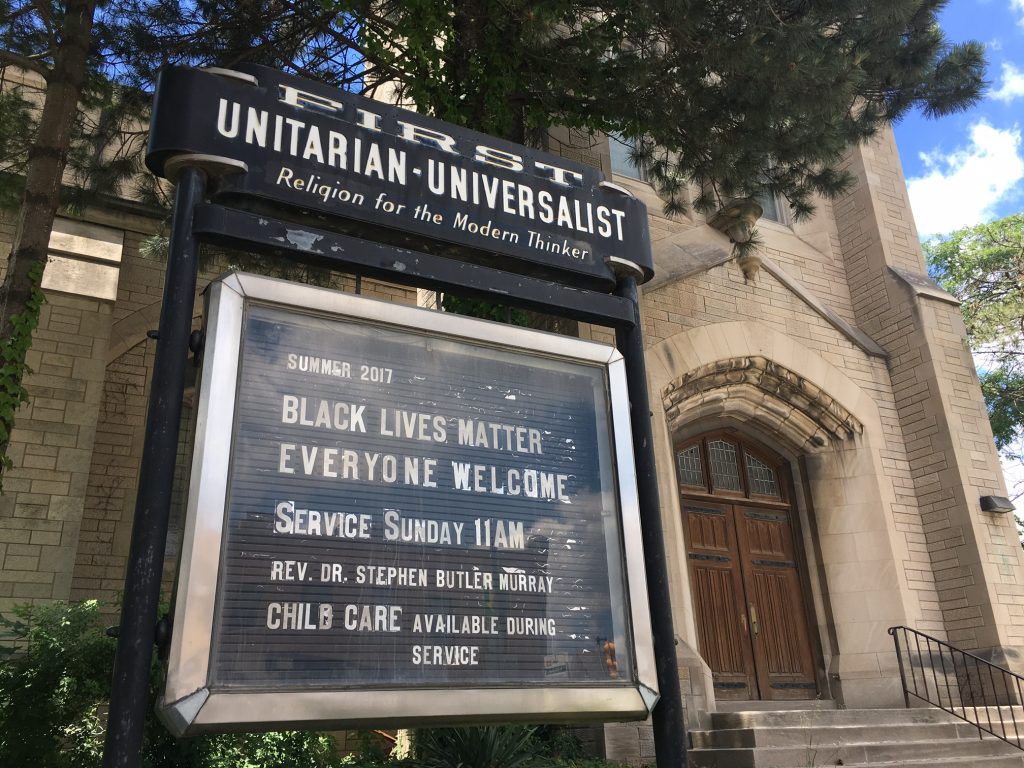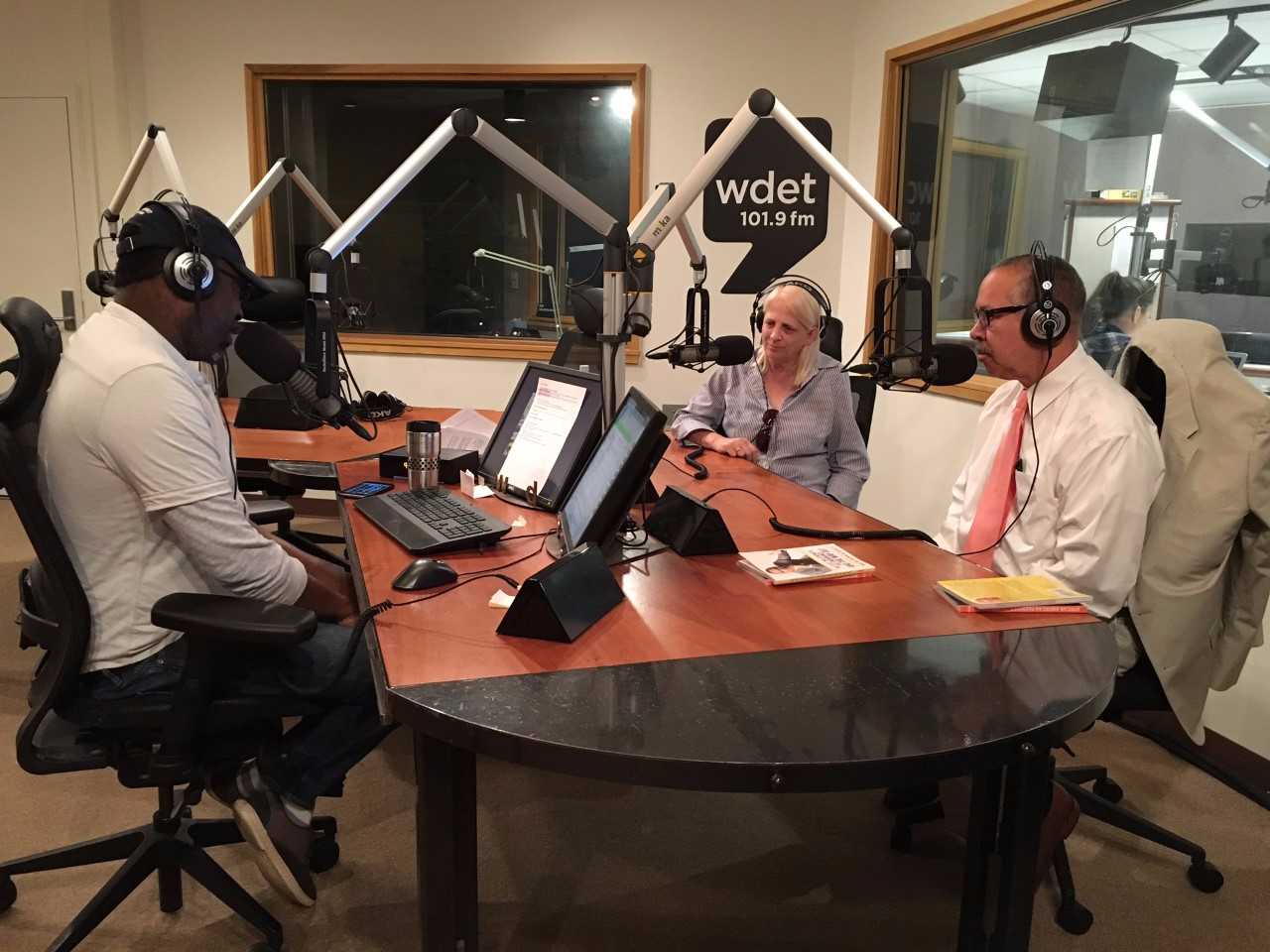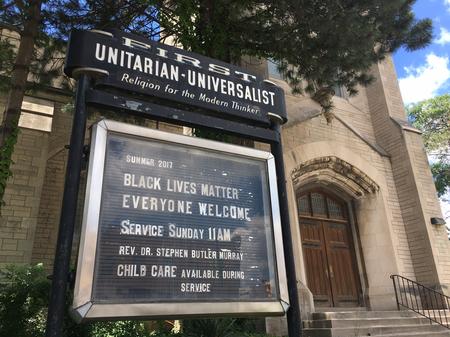Can Religious Progressives Become A Political Force Again?
“People in the progressive movement who are driving the liberal politics… many of them are not in church.”


Many of the major progressive movements of our nation were rooted in the church. Political strategy centered around moral obligation came from religious groups that pushed for an end to slavery, equal rights for women, and an end to Jim Crow laws. But over the past few decades the message of religious obligation and morality has been largely won-over by the Conservative movement. The Republican Party has benefited greatly from the support of the conservative church, which has found political inroads with an anti-abortion, anti-LGBT, evangelical base.
But new humanist movements are afoot that have invigorated the liberal church — with discussions at the fore over the value of Black and immigrant lives, and the future health of our planet.
Can progressive churches and religious messages find their way back into political and social prominence in a way that shapes the future of our country? Or are progressive movements now owned primarily by secular America?
Laurie Goodstein, national religion correspondent for the New York Times, recently published an article titled “Liberals Fighting for their Faith: Seeking to Break Right’s Grip on Nation’s Moral Agenda.” Goodstein joins Stephen Henderson on Detroit Today to discuss the role of faith in politics.
Goodstein says after President Donald Trump was elected, she noticed religious people wanting to make their presence known at marches and protests.
“I think what they’re saying is that they want to bring a moral language to the debate,” Goodstein says. People of faith and the clergy, she says, believe they have language that can help the country decipher right from wrong.
The conversation continues with Rev. Faith Fowler, executive director of Cass Community Social Services and pastor of Cass Community United Methodist Church and Rev. Nick Hood III, pastor and senior minister of the Plymouth United Church of Christ, both in Detroit.
“I think the challenge for today is that 65 or 70 percent of Americans don’t go to church,” says Hood. “The people in the progressive movement who are driving the liberal politics right now, many of them are not in church… The other issue is that many of the churches in Detroit are fighting for survival [because they] can’t pay their water bill… So I don’t think the church has really forsaken the politics. It’s kind of a sleeping giant.”
Many Detroit churches are struggling to stay open, but according to Fowler, they’re still driving charitable work in their communities.
“Almost every church in the city of Detroit is doing something because they’re surrounded by such great need,” says Fowler. “At one of our main campuses, the poverty rate is over 44%, so… those mercy ministries are important. But so are justice ministries… Part of the problem is if churches receive government money, they feel very limited in what they can do as it relates to justice ministries because your funding comes from the government, the separation of church and state, and all that kind of thing.”
Click on the audio player above to hear the full conversation.

